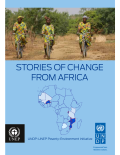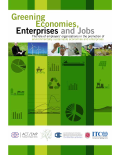
This resource guide provides an overview of the current sustainable development debate, the main environmental challenges and their implications for business, the greening of enterprises and workplaces, and the role that business and employers’ organizations can play in lobbying and service development in the environmental field.
It represents a major step forward in supporting and encouraging employers’ organizations and their members to take concrete actions towards more environmentally sustainable business development.
This publication is being launched at an opportune moment as the ILO has embarked on the “Green Initiative” as part of a reflection on the Future of Work in the lead up towards the ILO’s centenary in 2019. The Green Initiative aims at expanding the ILO’s knowledge base and strengthening its leadership in guiding constituents through the transition to more sustainable enterprises, economies and societies.
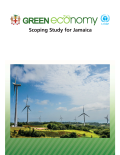
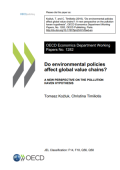
Increasing international fragmentation of production has reinforced fears that industrial activity may flee to countries with laxer environmental policies – in line with the so-called Pollution Haven Hypothesis (PHH). If PHH effects are strong, domestic responses to environmental challenges may prove ineffective or meet strong resistance. Using a gravity model of bilateral trade in manufacturing industries for selected OECD and BRIICS countries over 1990s-2000s, this paper studies how exports are related to national environmental policies. Environmental policies are not found to be a major driver of international trade patterns, but have some significant effects on specialisation. More stringent domestic policies have no significant effect on overall trade in manufactured goods, but are linked to a comparative disadvantage in "dirty" industries, and a corresponding advantage in "cleaner" industries. The effects are stronger for the domestic component of exports than for gross exports, yet notably smaller than the effects of e.g. trade liberalisation.
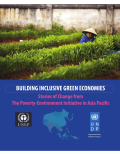
The UNDP-UNEP Poverty Environment Initiative (PEI) offers a unique way of tackling these issues together by offering policy options to governments on how sustainable use of natural resources can help reduce poverty and maintain economic growth. With strong support from six donors globally, PEI in Asia Pacific is working with nine countries to mainstream pro-poor natural resource management into economic policies and decision making to achieve more inclusive green economies.
